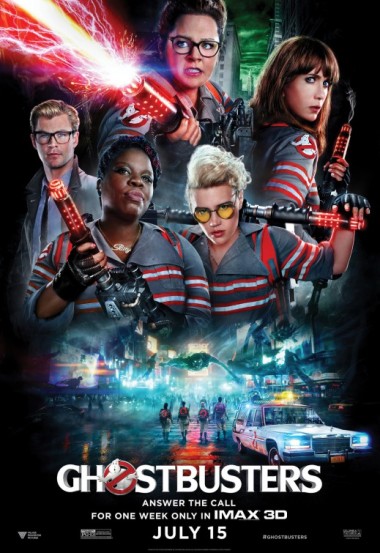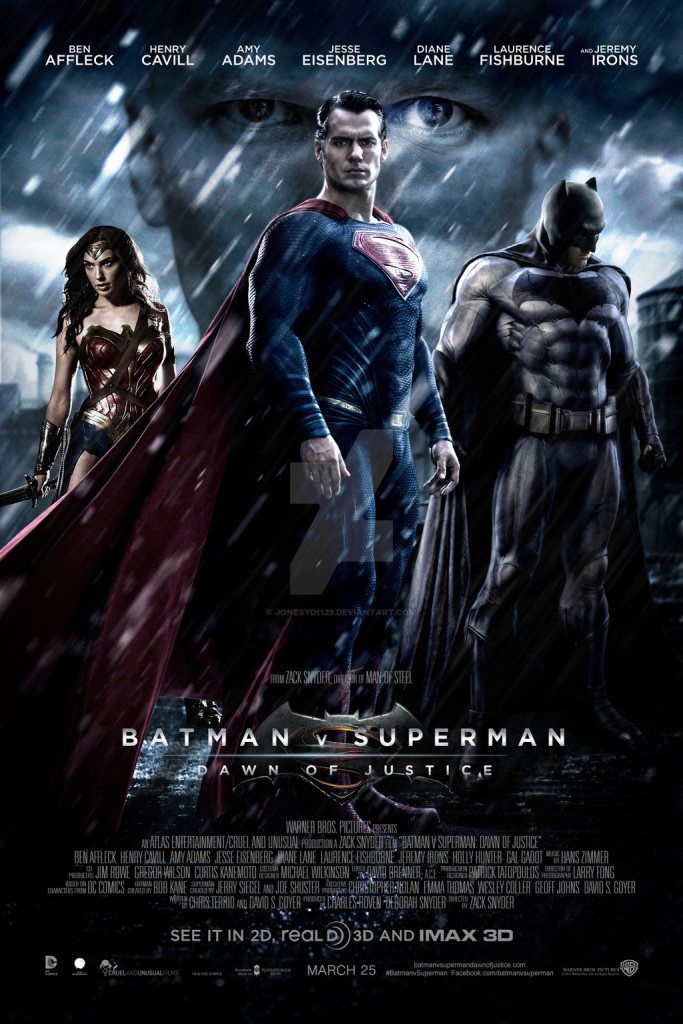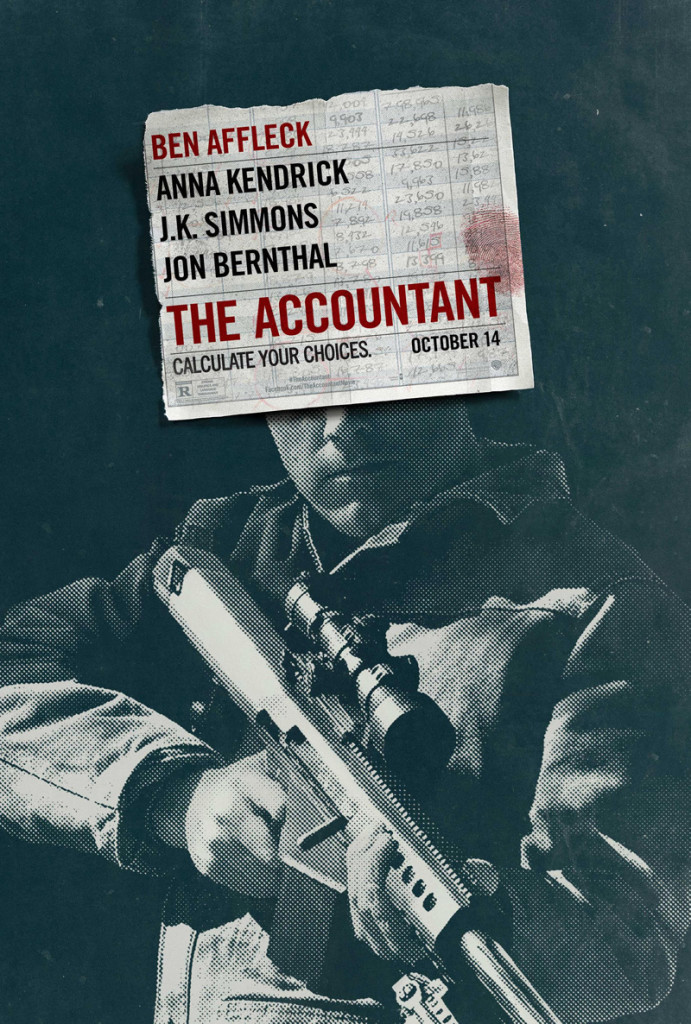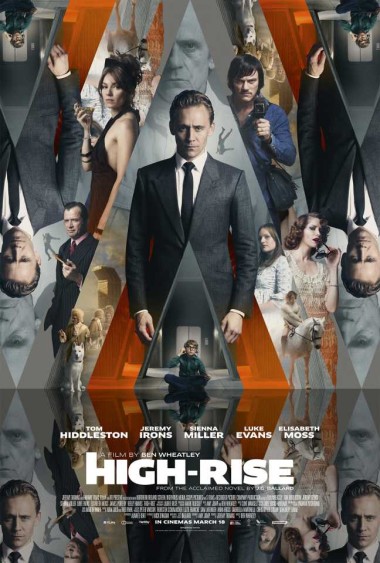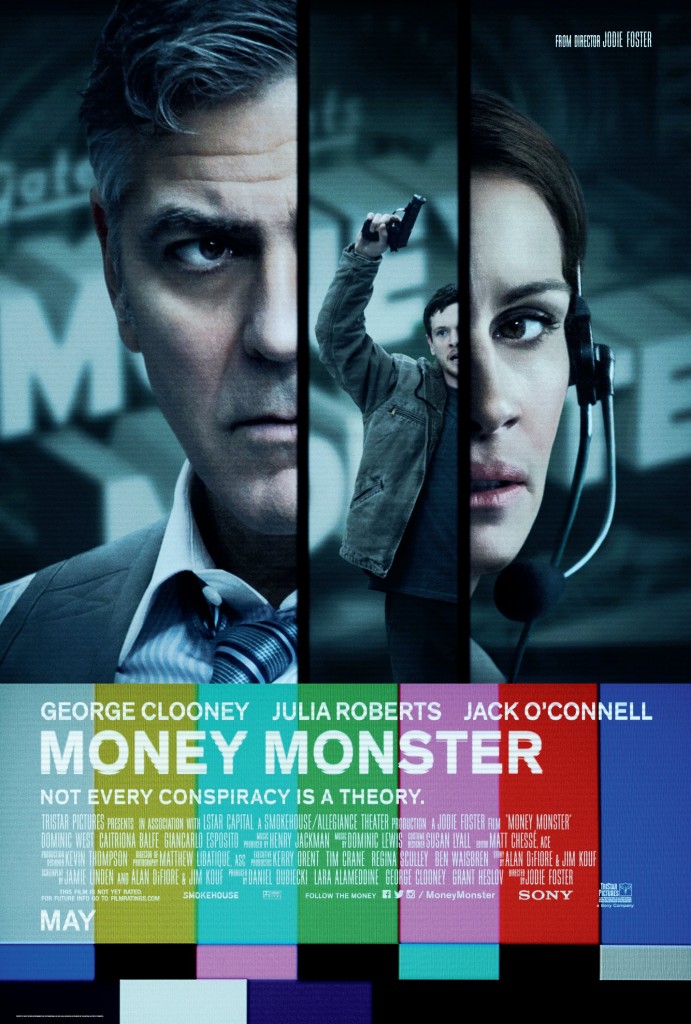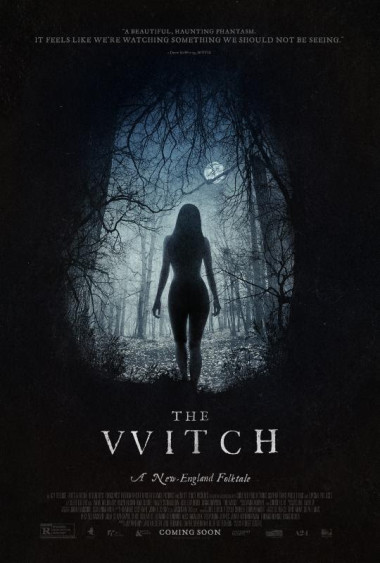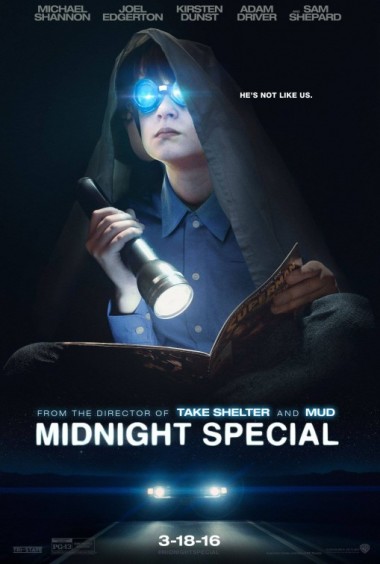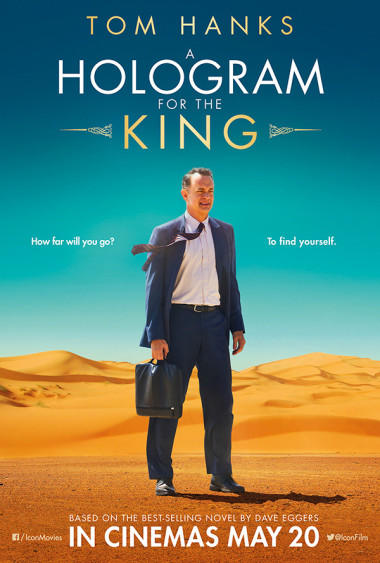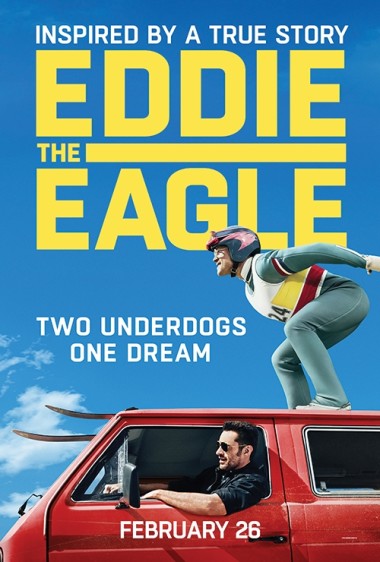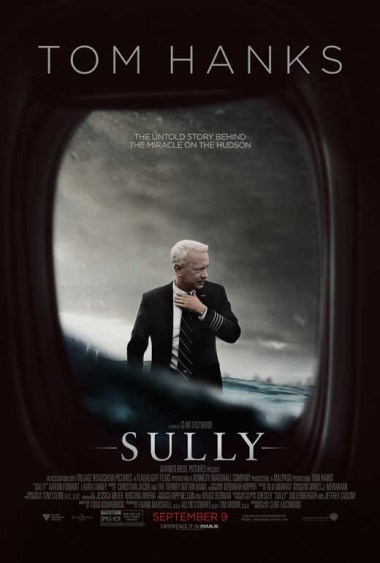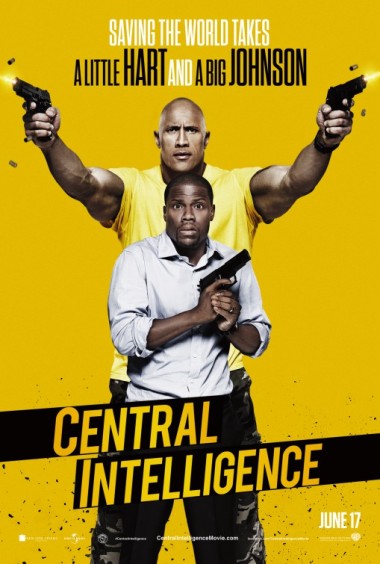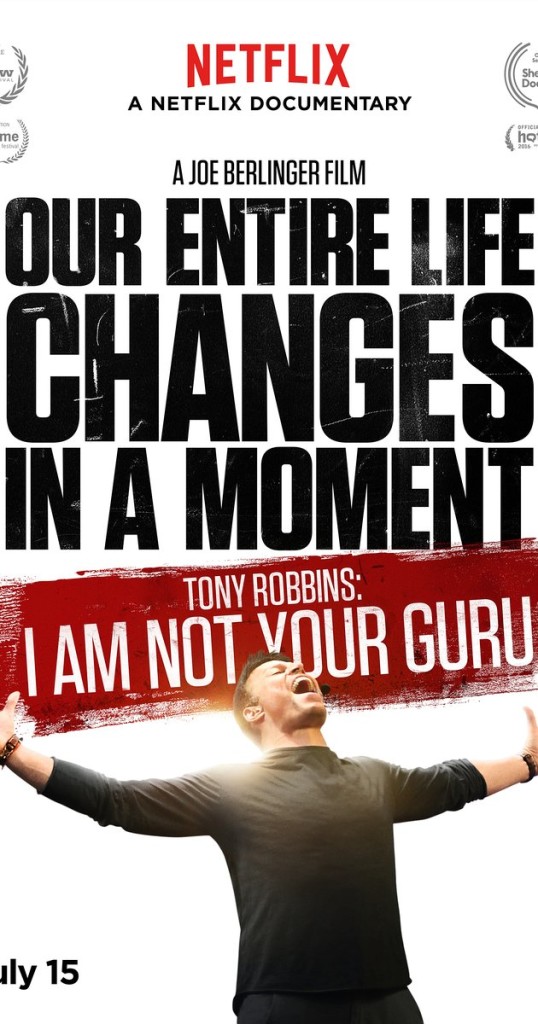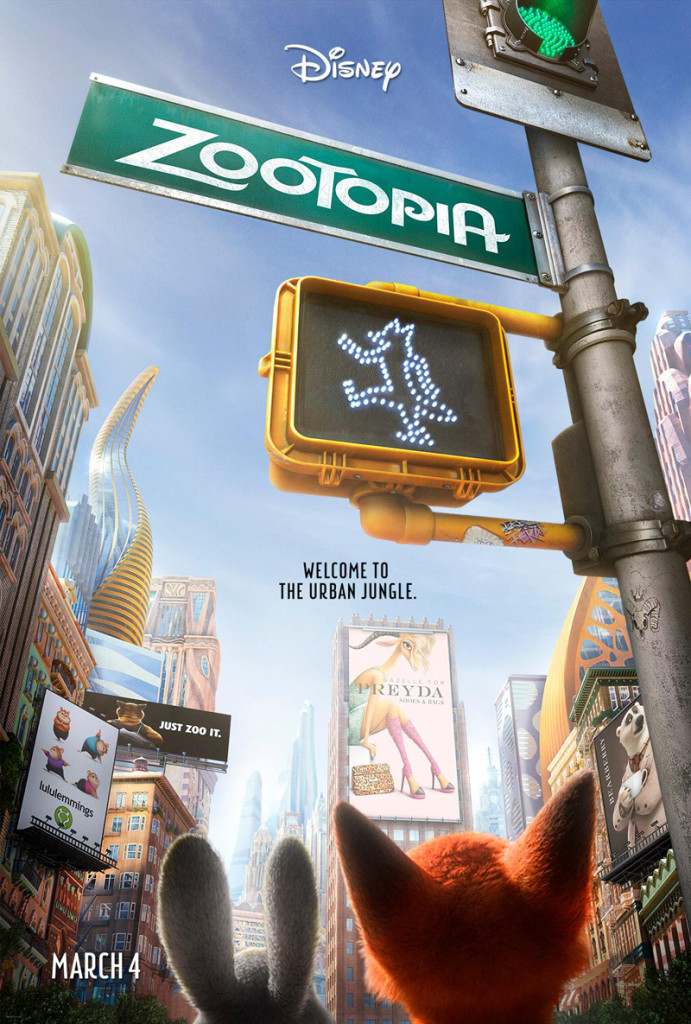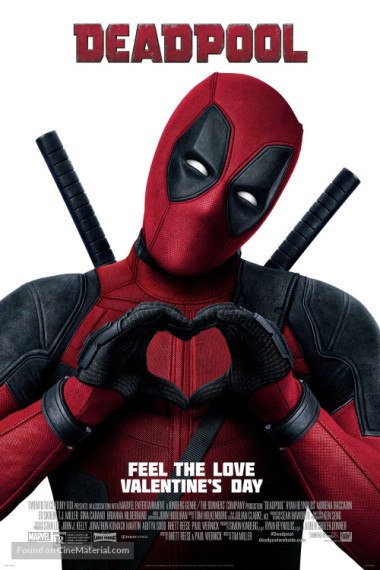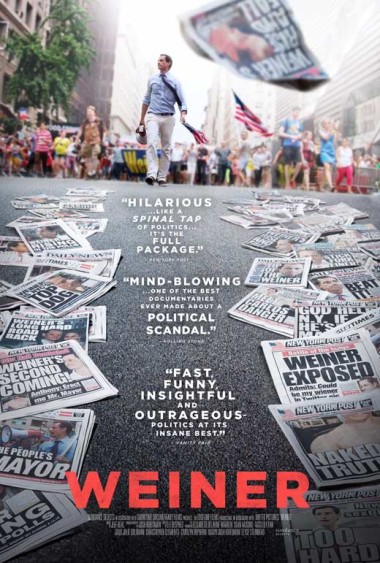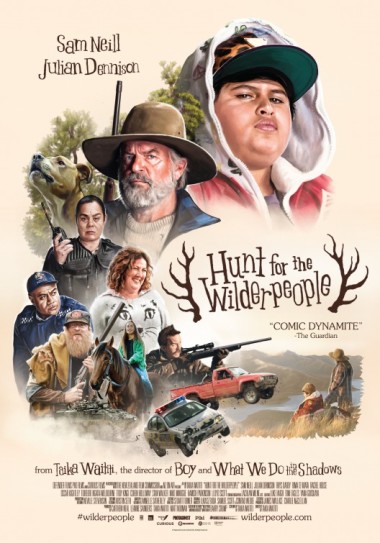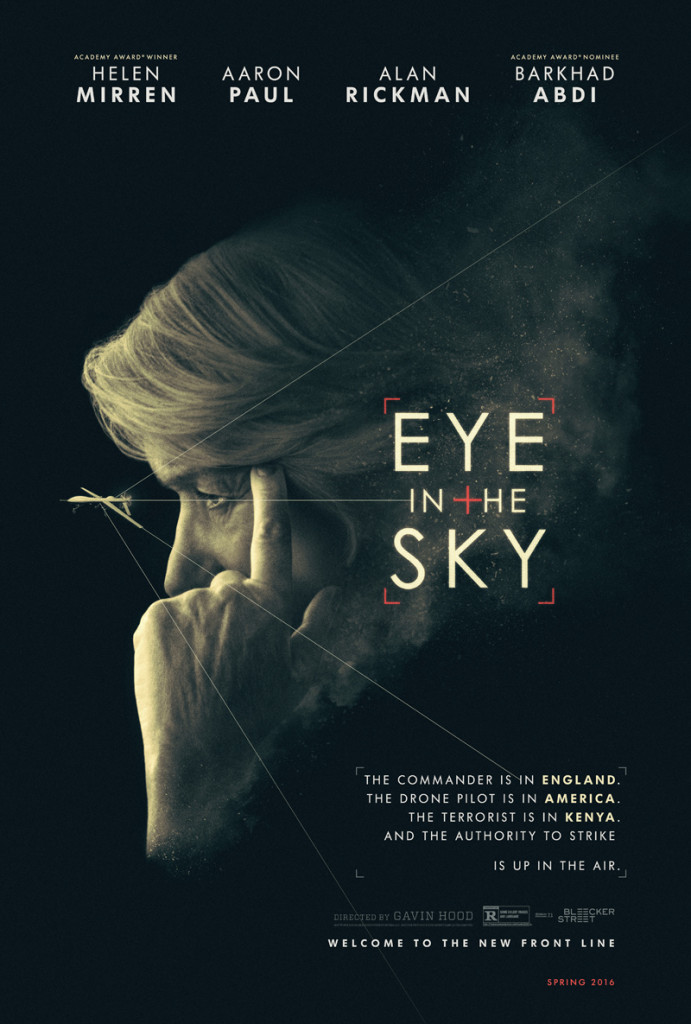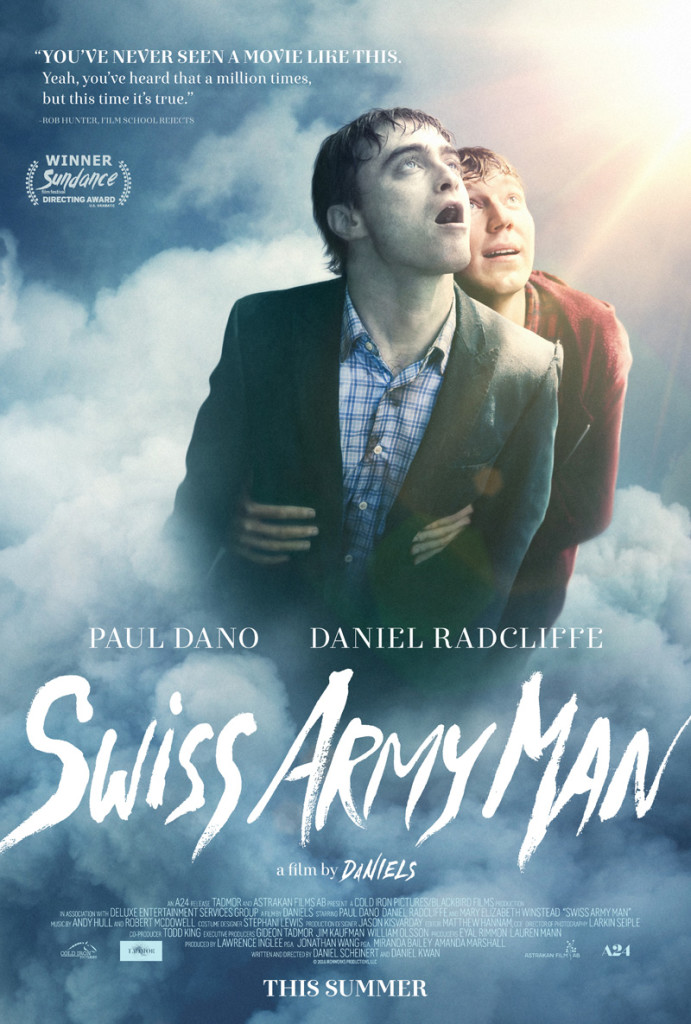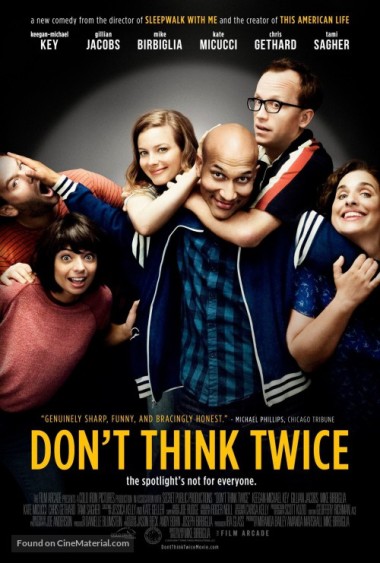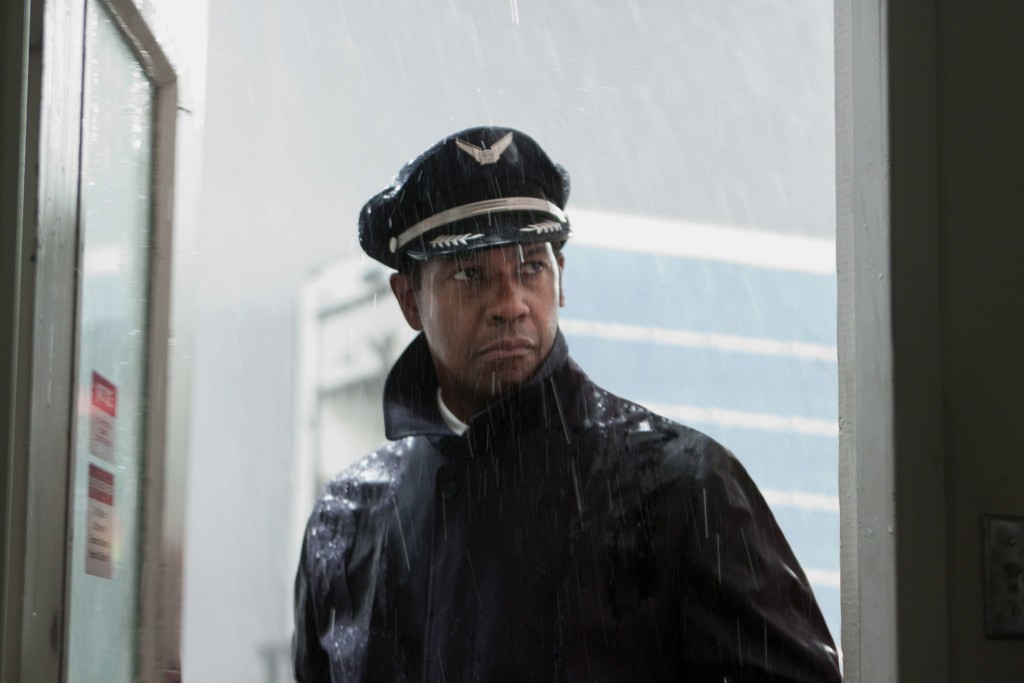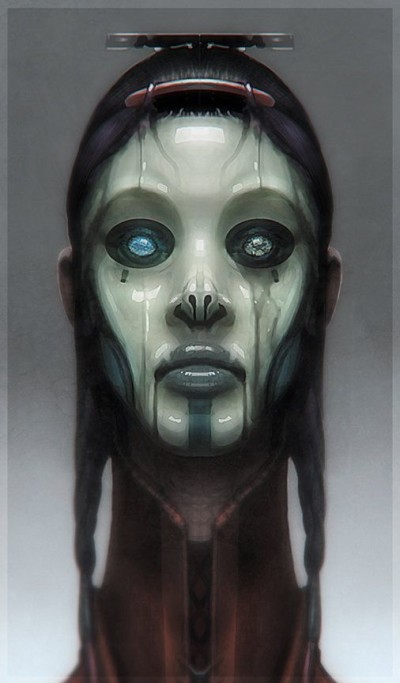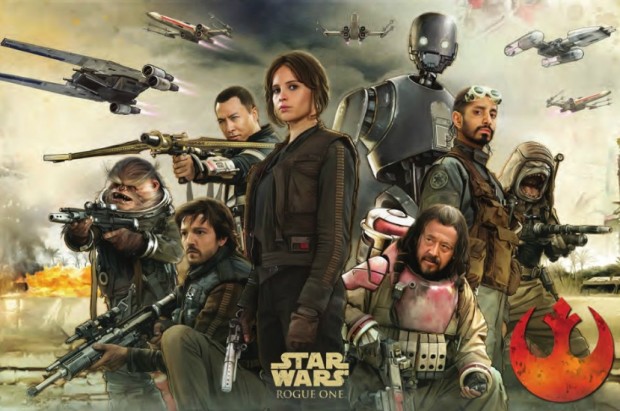It’s here. It’s now. The ten worst films I saw and the ten best. It should be noted that I haven’t seen La La Land, Manchester by the Sea, Collateral Beauty, Passengers, Fences, or Billy Lynn. I’m pretty sure Billy Lynn and Collateral Beauty (going off of what everyone’s saying) would’ve made my “Worst” list. But alas, I don’t have the endurance anymore to go to movies I know I’m going to hate. So, here’s what’s left…
WORST FILMS
10) Ghostbusters – The cinematic embodiment of the social justice warrior crusade, telling us that we have to like what they, the world, has decided is best for us. The result was a movie that everyone watched and went, “Wait, why do Ghostbusters have to be women now? Why can’t they just be men and women?” Because men in 2016 are bad, that’s why.
9) Batman vs. Superman – So pretentious in its writing and directing that it gave you aches in places you didn’t now you could ache. After the 17th flashback to either Batman or Superman’s past, I wondered if the movie even cared about the present. How a movie with the two most popular superhero characters of all time could be so boring is a question aliens will debate one day when they take over our planet in 2512.
8) The Accountant – I didn’t see a more nonsensical movie all year. He’s OCD. He’s a contract killer. No, wait, he’s an accountant. No, he’s a consultant for companies. No, his dad taught him kung-fu. What’s the plot again? The government needs to find him RIGHT AWAY because he’s living somewhere and not bothering anybody? And he launders money.
7) High-Rise – A beautifully shot film without even 10 minutes spent on a screenplay, this film felt like Ben Wheatley stumbled onto the set and started making up things as he went along. Get a screenwriter, Ben. You’re a stud filmmaker but you can’t do it on your own.
6) Money Monster – An idea plucked out of the early 2000s given the treatment of 1990s film, attempting to rip off the chaos of the 1970s. After it was all said and done, it became a 2016 disaster, a bunch of old people who’ve lost touch with what audiences want. I’m all for adult fare, but you need to know what adults actually want.
5) The Witch – Holy Moses this was the most overrated piece of garbage of the year. I thought I was about to watch something amazing. Instead I witnessed a pretentious period piece with a bunch of well-costumed actors stumbling around a photograph-friendly farm. Another director who’s never learned how to tell a story. Wonderful.
4) Midnight Special – One thing that drives me batty is when reviewers give a bad film a good grade cause doing otherwise would fuck with the narrative. Jeff Nichols is supposed to be this up-and-coming filmmaker and this was supposed to be his break into the mainstream, his “early Steven Spielberg” film. Instead, it was a wandering mess that never committed to anything concrete, choosing instead to imply a whole lot of nothing, leaving us wondering what the point of the movie was when it was over. It’s okay to write screenplays that make sense. And it’s okay to say a movie sucked even when it doesn’t fit the narrative.
3) A Hologram For a King – This movie was the most bizarre thing I saw all year. It felt like something directed by Siri. Yes, I’m talking about the Artificially Intelligent concierge on your phone. Tom Hanks technically gave a performance, though I have a strong suspicion that he Skyped in his scenes standing in front of a green screen, which were then digital inserted into the film. If that doesn’t sell you, maybe the plot where nothing happens for 120 minutes will win you over.
2) Eddie the Eagle – Easily the worst performance of the year. I want you to go to the nearest mirror and make the goofiest smile-face you can think of. That was the actor’s, in this movie, entire performance. The writer also forgot to leave the 80s, as this screenplay seems to have been written immediately after a binge-watch of every 80s comedy ever made.
1) Sully – Was this the worst movie of the year? Probably not. Was it the most pointless movie of the year? Definitely. Sully and Billy Lynn (of which I read the book) are an example of what happens when you try to make a movie without a single dramatic beat. Drama is the essence of entertainment, something the makers of this film either don’t know or, worse, ignored.
BEST FILMS
10) Central Intelligence – Before you castrate me for liking this film, a film I’m sure you haven’t seen, let me add some perspective to the conversation. I don’t like Kevin Hart at all. I detest nearly every film he’s in. That Ride Along flick is garbage. Central Intelligence, however, not only gives us the best chemistry between two actors in any movie this year, but it’s a surprisingly good screenplay. Nothing flashy. Stays close to all the beats you’re supposed to hit. Yet it manages to stay ahead of the reader/viewer. Biggest surprise all year as I expected this to suck.
9) Tony Robbins: I Am Not Your Guru – I promise you there isn’t a film you’ll see this year that will make you squirm more than this one. It’s on Netflix and all I ask is that you watch the opening scene. I promise you won’t be able to look away. You’ll ask, out loud, “Does this really happen?” It does. Welcome to the cult of Tony Robbins.
8) Kubo and the Two Strings – This movie isn’t perfect. Before seeing it, I heard people marveling at how a “simple story could be so good.” But Kubo isn’t simple at all. Actually, it has some of the more complex and hard-to-follow world building I’ve encountered this year. Despite that, it’s a beautiful film to watch and listen to, and comes together in such a satisfying way in the end.
7) Zootopia – There wasn’t a movie in 2016 that made you feel happier to be alive than this one. That damn rabbit is so freaking cute.
6) Deadpool – The superhero genre needed to be disrupted. Deadpool charged towards the wall Hollywood tried to put up in front of it, broke through, and gave us the biggest box office surprise of 2016. It also reinforced the notion that nothing ever gets made by accident in this town. There has to be at least one person who will stop at nothing to get their movie made. Deadpool had four of those people and we’re the beneficiaries of their drive.
5) Weiner – I know, I know. Another documentary, Carson? Really? Just watch this film. You’ve never met anyone who can’t get out of their own way the way Anthony Weiner can’t get out of his own way. What a freaking weirdo. What’s so strange is that when he’s out in public speaking about issues and policies, he’s captivating. Then he gets home and all bets are off. The x-factor about this movie is the weird way in which it will later influence the 2016 presidential election.
4) Hunt for the Wilderpeople – This movie makes me want to move to New Zealand. I loved the main character. I loved the relationship between the main character and the stepfather. I loved how you had no idea what was going to happen next. This movie makes you feel good about life in a different way than say, Zootopia, but does the job nonetheless.
3) Eye in the Sky – I never thought I’d like a movie about drones so much. But let me put this not so delicately. This is the movie The Hurt Locker could’ve been if it had a screenplay. They actually thought this thing through, and, as a result, we get the most tension-filled movie of the year.
2) Swiss Army Man – The best movie score of the year accompanies the trippiest movie of the year. This movie is not for everyone, but it’s the only movie that I saw all year that took REAL ARTISTIC CHANCES and those chances actually paid off. It’s weird, it’s unsettling, it’s funny, it’s awkward, but most of all, it’s unlike anything you’ve ever seen.
1) Don’t Think Twice – This is the only movie I saw all year that genuinely affected me on an emotional level. Sure, part of that is because it’s about the “artist’s journey” which is so relatable to me. But the character development is better than any other screenplay this year by miles. And like any good movie, it keeps getting better as it goes on. If you’re an artist, you will want to see this movie. It’s perfect.
Sorry about the lack of posts. I was at LAX all night yesterday trying to get back to the Midwest. I didn’t make it but it looks like a Christmas miracle might get me out tonight. Before we move on to today’s article, I want to beg every traveler out there to please never fly American Airlines for the rest of your lives. Not only is it a terrible airline as far as comfort and customer service, but they have to be the most clueless airline company on the planet.
After being bumped 3 times last night to later and later flights, my last flight changed gates ELEVEN TIMES. That is not a printing error nor is it an exaggeration. In addition to this, I saw three women break down, fall to the floor, and start crying, due to how much they’d been dicked around all night, and one man lead a 30 person revolt against the gate attendant. It was insane.
After we’d changed gates for the 10th time, American Airlines kept saying we couldn’t board because the plane outside was broken, and they needed to tow it out before they could bring in “our plane.” We waited an hour for this towing to happen. Finally, when they moved us to our 11th and final gate, which did not have a plane in it, many astute passengers pointed out that since they no longer needed to tow a plane away, they could bring “our plane” up and start boarding. American Airlines, clearly caught in a lie, quickly moved to a new excuse about air traffic being broken or something.
I know the holidays are crazy for air travel but I’m not basing my critique here on just this experience. Every time I have flown American Airlines, it has been terrible. I only flew them this time because I had to. But I will never fly them again after this. It was the last straw.
Now, on to funner topics!
Because I don’t have time to write an in-depth article or review, I thought I’d share with you some brief thoughts on a screenwriting concept that’s always frustrated me: THEME
Theme has always been a tricky concept. To this day, I’m yet to meet someone who’s given me a definition for theme that doesn’t sound bullshitty (this is why theme posts get debated so vigorously – since there is no definition, everyone’s interpretation is different). But the other day I stumbled upon a Youtube video covering academia and had a mini-revelation. As I retroactively tested that revelation, I realized how much sense it made.
The idea is this. “Theme” comes in two flavors – simple and complex. BOTH can work effectively. You can use the simple version of theme and still write a good movie. In fact, I’d argue that the simple version gives you a better chance at writing a good movie. However, the complex version gives you a chance at writing a GREAT movie.
But before we get into that, let’s remind ourselves why we’d want a theme in the first place. A theme is there to keep your story focused. Whenever you lose your way, like a lighthouse, the theme is there to steer you back on course. Without a theme, your script seems scattered, confused, and unsure of what it’s trying to say.
If you were to grade this article on theme, for example, it would fail. I started out talking about how shitty American Airlines was before moving onto a screenwriting article. That’s thematically inconsistent, which is why this article feels messy. You could argue that because I just referenced my opening to prove a point about theme, that the theme for this article is intact, but that’s a debate for another time.
On to “simple theme.” The simple version of theme is the act of wrapping everything around a single idea. That idea can be anything! Take the Star Wars movies. A common theme I’ve heard thrown around for them is “Good vs. Evil.” As long as you play out the struggle of good vs. evil, the movie’s going to feel consistent and whole. However, if a storyline popped up in Star Wars about a character who was obsessed with money and needed to have all the money in the universe, you’d be like, “Uh, what the hell does this have to do with Star Wars?”
Or take Zootopia. The theme there is that we can be anything we want if we put our minds to it. It’s a simple easy to follow formula that gives your movie a point. And since Star Wars and Zootopia are both awesome movies, we know this type of theme works.
Now let’s move to the complex version of theme. To achieve this, we’ll be transforming the word itself. “Theme” will now become “Thesis.” The idea with a thesis is to create a question or theory that has to be proven or debated over the course of the story. Whereas bigger budget Hollywood fare will lean on theme to power its core, character pieces rely more on a thesis. And the best way to understand the power of a thesis is to compare two similar character pieces, one that used a theme, the other that used a thesis.
The first is Sully. Sully was boring as shit. Why was it boring as shit? Because the theme was boring as shit. What was that theme: Heroism. That’s it! A man being a hero. Now yes, that kept the story consistent throughout its running time. We were never confused about what Sully was about. But because this was a character piece, it needed a thesis, something that forced us to think a little more.
Bring in Flight. Flight based its screenplay on a thesis, that thesis being: “Can a bad person still be a hero?” Denzel Washington’s captain character put 250 peoples’ lives at risk by drinking all night and snorting up coke before he piloted that flight. But he still ended up pulling off a radical maneuver that saved most of the passengers’ lives. Notice how, by using a thesis, the story becomes a lot more complex. We’re not sure what we think of Whip. Yeah, he saved all those people, but he shouldn’t have gotten on that plane fucked up in the first place.
In both cases, we have something to center the story on. But in one, that something merely represents what’s going on, whereas in the other, it forces us to continually ask a question. Can bad people be heroes?
Hey wait a minute. My last two examples were about airplanes. Maybe this article is more theme-centric than I gave it credit for.
I’ll finish by saying this. If you’re just starting out in screenwriting, whether you’re writing a Hollywood movie or a character piece, go with a theme. Even if you’re experienced and you’re writing a Hollywood movie, go with a theme. The only people for whom I’d encourage using a thesis are seasoned screenwriters who are writing character pieces. I say this because I’ve seen beginner screenwriters try and use theses and they always make it too complicated on themselves. By trying to make their stories so intelligent and thematically resonant, they forget to actually make them entertaining. Don’t be one of those guys.
HAPPY HOLIDAYS!!!
Genre: Contained Thriller
Premise: In an apocalyptic future, a teenaged girl raised underground by her robotic mother, begins to question whether everything she’s been taught by Mother is true.
About: This Black List script is written from across the pond. So all you UK writers who think getting your work recognized in Hollywood is impossible, don’t give up! Now Green did work as Colin Farrell’s assistant on Miami Vice, but before you go thinking that’s what got him this opportunity, note that that movie came out all the way back in 2006. I doubt Green called Farrell up after ten years and said, “Hey, remember how I kept your coffee at exactly 71 degrees for the entire production of Miami Vice? Can you read my script?” and Farrell was like, “Sure, and I’ll give it to Spielberg tomorrow.” And, to be honest, I’m not sure Colin Farrell, with his current stature in Hollywood, would be able to do anything for Green anyway. Since Green’s short stint in P.A.’ing, he’s written and produced a couple of short films, but this is his first known screenplay.
Writer: Michael Lloyd Green
Details: 102 pages
A few people have asked me, “Why do readers like contained thrillers?” And while the first answer is that they’re cheap to make and therefore, with a cool concept, have a shot at getting made. They’re also scripts that don’t require the reader to take notes.
This may seem like a strange detail to someone who doesn’t read a lot. But all readers know that there are easy reads and there are difficult reads, and the difficult ones are when you have to take a ton of notes.
Like, recently, I read a love story that took place during World War 1 in Germany. Every page, I had to stop and write down either a new character’s name or a location I was unfamiliar with or some important detail about the war. Those scripts take a lot more out of you.
This script has three characters. Not only that, but the characters’ names are Mother, Daughter, and Drifter. Talk about a script tailor-made for no notes! And, look, I know it sucks. A reader’s job is to read. He should suck it up and work hard even when a script is difficult.
That’s a wonderful way to look at things if you’re an idealist. But the REALITY of the matter is that readers are overworked writers who would rather be working on their own scripts. So you can write as an idealist or write as a realist. It’s up to you.
Does that mean don’t ever write a complicated story? No. Of course not. Some of the best spec scripts ever – The Truman Show, Seven, The Imitation Game, American Beauty – they require focus and, yes, the occasional note-taking.
But this is what makes the screenwriting medium so interesting. If you’re going to go that route, you need to know how to simplify the things that need to be simple, how to always make things clear, and how to make the read easy amongst all that detail. And that takes practice. And it takes KNOWING that you have to do that in the first place, because you’ve written a half-dozen screenplays before this one and got lots of coverage saying, “I don’t know what’s going on here. There’s too much.” It takes time to find that sweet spot of “enough to give your script depth” but not so much that it’s hard to keep up.
So with all that swimming in your noon-day noggin, let’s jump into today’s script, “Mother.”
“Mother” takes place in an underground cavern built to sustain people after a nuclear war. The problem is, there are no people. At least not yet. The entity who runs this facility, a robotic entity known as “Mother,” incubates the first human embryo for a plan, we presume, that will open the door up for earth’s repopulation.
Soon, Daughter is born. Daughter loves her robotic mother at first, but when she grows into her teens, she becomes bored and curious. What’s outside of these dark walls? Mother insists that to go outside means death. The air is contaminated and no human beings have survived.
Except that soon after Daughter finds a secret exit, a bloodied woman appears on the other side. Daughter lets her in, and the woman, “Drifter,” begins to spin a tale that sounds a lot different than the one Daughter’s been told. For starters, there are obviously other human beings alive.
Mother finds out about Drifter, and to both Daughter’s and Drifter’s surprise, decides to help her. But Drifter remains skeptical of Mother, and starts filling Daughter in on what she knows of the outside. For starters, there are machines roaming around, killing people. Could Mother be associated with these machines?
Then again, Daughter repeatedly catches Drifter lying about things herself, leaving her to make the impossible choice. Believe the woman who’s raised her, or the woman who represents everything she’s wanted – to be free and live out in the wild? It’s a decision that, most certainly, will end in death… for one of them.
We’ve been here before, right?
Two people in a contained room. A third enters. Wreaks havoc.
We just saw it with Cloverfield Lane.
It’s a recipe that works.
So what has today’s script added to the setup? Well, we’re in the future. We’ve got a robot. That’s different. And we’ve also got a unique relationship. This isn’t two people who’ve been forced down into a shelter against their will. These “people” have been here for awhile. And the fact that they’re family creates the potential for new plotlines.
The first of those is trust – the trust between a mother and her daughter, and how we’re innately supposed to go along with the way our parents raise us. As children, we don’t know any better. So if our father or mother tells us that killing is good, we believe them. Because what else do we have to go on?
That’s the dilemma at the heart of “Mother.” When does raising a child turn into manipulating a child? And aren’t we all, to a degree, manipulated? We’ve been raised on the morals and ethics of the parents who birthed us. And since our childhood years are the most influential on our make-up, we usually take those beliefs all the way through life.
So that’s the undercurrent of Mother, which is interesting, I guess.
But what about the plot? Does Green solve the biggest issue facing Contained Thriller writers: Coming up with enough story to last an entire movie? Unfortunately not. He does okay. But I felt like I read half-a-dozen scenes of Drifter in the Infirmary complaining about Mother and trying to get Daughter to come with her.
Also, Drifter falls short as a character because she’s so mysterious. Again, when you have a character built on mystery, you can’t explore them below the surface. To do so would be to reveal who they are, which is something the character’s not created for. So Drifter ends up coming off as a repetitive sock puppet – there to repeatedly say, “Mother is lying. I’m not.”
Luckily, the Mother-Daughter relationship is compelling enough to overshadow this weakness. Whenever you can write a character who fills two different extremes, you’re going to get some interesting results. (spoiler) That’s what Mother is. She genuinely loves her child, but she’s also perfectly capable of killing her if she isn’t up to speed with what the repopulation of the human race requires.
So “Mother” was an okay execution of a popular setup that did some nice things. But in the end, it didn’t do enough to excite me or advance the genre. In that sense, it wasn’t for me.
[ ] What the hell did I just read?
[x] wasn’t for me
[ ] worth the read
[ ] impressive
[ ] genius
What I learned: When you’re choosing a script to write, ask yourself, “Is this a note-taking script or a non-note-taking script?” If it’s the former, realize that you’ll be fighting an uphill battle against a reader who will resist the amount of focus required to understand your story. However, if you work hard to make all that extra information clear, and you’ve written an engaging story on top of that, you can travel down this path and survive.
Genre: Comedy
Premise: A development exec displeased with the direction Hollywood is going gets stuck working on the latest film from the man who embodies that direction, Lax Mandis.
About: Today’s script finished with 22 freaking votes on the 2016 Black List! Assuming the main character is an avatar for the writer, I think Scott Specter is a development executive who wrote this script out of his own frustrations.
Writer: Scott Specter
Details: 109 pages
It’s almost Christmas.
And what goes better with Christmas than Max Landis!
The other day, I hopped on Twitter, and 92% of my feed was Max Landis. There are very few people – dare I say no one! – who comes even close to reaching that kind of output. Doesn’t matter if it’s scripts, tweets, or Panda Express receipts. You can’t approach the Max.
Now a few days before that, I saw Max tweeting about this very script. Which is sort of like watching LeBron James with LeBron James commenting on LeBron James. Well, not exactly like that. But you get the idea.
What happened in those tweets was not kind towards today’s writer. Max isn’t a fan of Lax. In fact, he went so far as to call out anyone who makes fun of him, reinforcing how hard he’s worked to get this far in his career.
But Max, I mean come on. You have rainbow hair, attack any movie that makes more than 300 million, and are a social media hurricane. Attention out = attention in.
With that said, I agree with Landis that all the scripts that have attacked him so far are lame one-trick ponies. Will Lax Mandis be the one that gets it right?
Jay has been a development exec going on 10 years now, and while he isn’t 100% jaded yet, the jaded progress bar is filling up fast. Jay’s issue is that the Instagram-Pokemon-Go generation is ruining movies with their attention deficit disorder viewing habits. There’s more depth these days in a cereal bowl.
And what screenwriter represents this generation better than Lax Mandis, a screenplay-writing machine whose latest film, Barnacle (about a half-man, half-barnacle) just hit 100 million at the box office. The whole town is hungry for more. The whole town, that is, besides Jay.
While Jay bitches to his friends about Lax’s success, he inadvertently ends up at Lax Mandis’s house party, and meets the man himself. Lax likes Jay’s views on the industry so much that he wants him to come and work on his latest movie, a contained thriller that takes place in a closet, starring Tom Cruise.
Jay doesn’t want the job until his girlfriend gives him an idea. Use this opportunity to expose Lax for what he is, a sham. Jay likes that idea enough to accept the job, and as soon as he’s on set, starts feeding negative information (such as Lax’s pet tiger being allowed to roam freely around the set) to The Wrap. Of course, what Jay eventually learns is that he’s projecting his own frustrations onto Lax, and that if there’s anyone whose life needs evaluation, it’s his own. In a strange way, Lax is the best thing that ever happened to Jay.
Believe it or not, there’s some funny stuff here! The title page, for starters, has an ASCII picture of two hands flipping the bird. A character complains how the latest Mandis script “has a Sudoku puzzle in the middle of the script for no reason.” There’s plenty of self-referential action line writing. A character will say, “I hate staring at a blank page,” and the next action line will read: “I really do.” And there are many observations of Landis’s writing that sound like this: “It’s like he falls asleep on the keyboard, wakes up, and goes: “That’s not bad.”
But the most surprising thing about the script is how deeply it delves into the frustrations associated with trying to make it in Hollywood. It feels, at times, like Specter forgot he was writing a Landis hit piece and used his script to opine on how shitty the movie business has gotten. There’s a scene on page 20 between Jay and his girlfriend that’s as honest and relatable an assessment of trying to make it here as I’ve read.
So for 50 pages, I was on board with Lax Mandis.
But then the script started getting sloppy. The joke that Mandis keeps his pet tiger on set felt uninspired. And the whole joke about Tom Cruise being stuck in a closet happens to have been done before in one of the most popular episodes of comedic television ever (in South Park).
But probably the biggest faux-pas was not going crazy enough with Mandis. Max Landis is a character. You cannot go broad enough when you write him. And, strangely, Mandis always felt a few “z’s” short of crazy. Maybe it’s because Specter wanted to humanize him. But if we’re coming to your script specifically to see you go nuts with a character, you better bust out the macadamias.
All in all, the second half of this script didn’t live up to the first. And this is a problem I see often. Writers go hard on that first half. And then the second half rolls around and their priorities change. It’s less about writing a stellar screenplay and more about finishing. “If I can just FINISH…” is the mentality. And the problem with this mentality is that the reader feels it. We sense that you want this to end.
It doesn’t help that the average writer rewrites the first half of their script 7-10 times more than the second. That’s a result of the way screenplays are written, from the top down. You’ll rewrite scene 4 ten times before you’ve even reached the second half of your screenplay. So I get it.
But you have to realize this and adapt. When you get to that midpoint, treat the second half like a whole new screenplay. Jump into it guns blazing, just like you jumped into that first scene. The second half is where a lot of screenplays go to die. And I believe it’s because of laziness. That’s good news when you think about it because laziness (unlike, say, a boring main character) is easy to fix.
To recap, this isn’t a bad screenplay. It’s got a handful of jokes that made me laugh out loud. Most of the Hollywood struggle commentary was authentic enough to make me nod my head while reading it. It just runs out of steam. Jay started repeating his thoughts on Hollywood. The production stuff wasn’t as engaging as the earlier boardroom meeting stuff. It lost its spark.
With that said, this is something screenwriters may want to check out due to all the inside jokes. And if you’ve read a Max Landis screenplay, you’ll definitely have a chuckle or two.
[ ] What the hell did I just read?
[x] wasn’t for me
[ ] worth the read
[ ] impressive
[ ] genius
What I learned: I believe the reader can feel what you the writer feels. So if you don’t believe in a scene, we won’t believe in it. If you’re just trying to get to the end, we feel like we’re rushing towards the end. The second you stop lacking passion, the script lacks passion. You can’t slip anything by the reader. They always know. So if something doesn’t feel right, don’t say, “I hope the reader doesn’t notice.” They will notice. So go back and fix it.
Genre: Sci-fi/Fantasy
Premise: A ragtag group of rebels attempt to steal the plans to the biggest weapon in the galaxy.
About: Rogue One is the first movie in the “standalone” Star Wars universe. Its production struggles have been well-documented, as over 40% of the film was reshot. Look no further than the first trailer for Rogue One to see how bad it got. Barely anything we see in that first trailer is in the final film. The film was directed by Godzilla director Gareth Edwards and comes out… TODAY!
Writers: Chris Weitz and Tony Gilroy (story by John Knoll and Gar Whitta) (based on characters by George Lucas)
Details: 2 hours and 13 minutes
I’ll get right to it.
I was so disappointed by Rogue One that I considered not writing this review.
I thought this movie would at least be decent. Most of the people I trust online liked it. But everyone seems to be wearing their Star Wars goggles (Star Wars Goggles is a phenomenon by which you love a Star Wars movie right after you see it, then several months later realize you hate it).
I’m struggling, ten hours later, to find anything that I liked.
Everything about this film was either bad or weird. And the only times it felt anything like a Star Wars movie was when it cross-referenced the other films.
THERE WILL BE SPOILERS BELOW!!!
For those who don’t know anything about the plot, the infamous Death Star’s killer planet ray was created by a dude who hated what he was doing so much, he built a secret flaw in the system that would allow anyone who knew about it to blow the whole thing up. The Rebel Alliance recruits the man’s daughter, now a criminal, to find her father and retrieve those plans. She, in turn, teams up with a rag-tag group of nasty dudes to go perform the mission.
It’s a pretty good plot, to be honest. So where does it go wrong?
The characters. Oh my God, the characters.
Jyn Erso – Easily the least charismatic lead character in any Star Wars movie. And that’s hard to pull off when you’re competing against the prequels. Holy shit was this character boring. She just looked angry a lot of the time. We don’t need to look further to know why this movie failed. If your lead character isn’t interesting. If we don’t care whether they succeed or not, the most adept screenwriting plotter in the world can’t save the film. I felt 1000 times more emotional watching William Wallace (an obvious inspiration) lose his father as a kid than I did Jyn Erso cradling her dead father. And I’d known William Wallace’s character for one scene. Boring boring boring boring. People can hate on Rey. But one thing Rey was not was boring.
Cassian Andor – So we’ve at least gotten the worst character out of the way, right. Nope! There’s a character who’s, somehow, even more boring! Cassian Andor! I think this guy was supposed to be the Han Solo of the group, but here’s the problem. He had no wit and no charm. Like most characters in this movie, he kept his thoughts close to the vest which meant we never got a chance to know or care about him. This is the problem when everyone has a secret motive, is we don’t get to know them as people. And if we don’t know them, we don’t care about them.
Bodhi Rook – Okay, phew. We’re done with the scathing character assassinations, right? I mean, it can’t get worse than that. Oh no, it can get worse. It can get so very worse. I am officially announcing Bodhi Rook as the second most annoying character in the Star Wars universe behind Jar Jar Binks. WHAT THE FUCK WAS GOING ON WITH THIS CHARACTER? Half the time he was mumbling to himself. The other half he had to be told to do something eight times before he understood it. Riz Ahmed better thank his lucky stars that The Night Of came out this year. Or there’s a good chance this role would’ve ended his career.
So did I like anyone? Yeah, Ben Mendelsohn was solid as Orson Krennic. Donnie Yen was cool as a blind dude with Jedi aspirations. And K-2SO was good with a few funny lines. But it was like using the Chicago Fire to roast marshmallows. Are these performances really that tasty when the rest of the movie is burning down all around you?
And don’t get me started on the special effects. There hasn’t been a moment I’ve felt more uncomfortable during a movie all year than when General Tarkin’s CGI character appeared. He looked and moved so robotically, it was like I was transferred back to 2002 CGI. This is Star Wars. There isn’t a production that has better resources in the special effects department. Hell, Star Wars CREATED the special effects industry. And this is what they give us??? Some video game CGI character that takes us right out of every scene he’s in?
Then there’s Vader.
No.
Just no.
Everything about Vader in this movie sucked. Meeting Vader on his nerdy Lava Hideout (an early iteration of Vader’s home that previous Star Wars teams scrapped because it was so dorky) for a scene that made no sense other than to… well, have a Vader scene. And then, to resort to giving Vader a 1980s Arnold Scwartzennegar zinger???? “Make sure not to choke on your aspirations?” It was cringe-worthy to the millionth degree. I felt like I was watching two 12 year old’s rendition of what a new Darth Vader scene should look like.
And then in the end, we get this Vader song and dance kill a bunch of people in a hallway scene that WAS THE MOST UNNECESSARY SCENE IN THE MOVIE. Not only does it show that the writers don’t understand why Vader is cool (Vader is cool cause he’s stoic), but think about this for a second. If you’re a kid who’s never seen a Star Wars movie, and you’re watching this film, you’d be like, “Why is that guy in the dark suit who was in one pointless scene all of a sudden the star of this ending?”
Then there was the score.
What the hell did this new guy do to the Star Wars score???? He turned it into one of those scores you hear in Star Wars parody videos where it’s clear they didn’t get the rights to the music. So they changed up the second half of the chords to stay out of legal trouble. That’s what Micahel Guggianico’s entire score felt like. You kept waiting for the iconic melody and it never came. It was like bad sex. Never any climax.
And I don’t usually talk about score cause I don’t know shit about it. But there is no franchise more tied to its score than Star Wars. Maybe after a second viewing I could appreciate it more. A lot of good music tends to grow on you. But honestly? I don’t know if I’m going to watch this again. And you’re talking to someone who’s watched every Star Wars movie at least five times (even the prequels!).
Is there anything, ANYTHING, that I liked here? Let’s see. I thought Jedha was a cool idea. That was one of the better sequences. And I thought the tropical island location was a fresh way to explore a Star Wars battle.
But you know what bothered me? This plot was BEGGING our characters to sneak onto the Death Star, yet they never go there! Think about it. The original Star Wars was limited in its ability to explore the Death Star due to budget. This movie could’ve explored the intricacies of the Death Star on a whole new level. The most iconic villain lair of them all. Yet we never go there. It was an odd choice to say the least.
Rogue One helped me better understand why Star Wars worked. Star Wars was a simple story about a boy with big dreams. It’s so relatable. All this shit about “STAR WARS MUST BE DARK” is a big part of why this movie failed. All the characters were rebels and resistors. There was no purity, no one truly good to get behind.
It resulted in a beautiful to look at film with no soul.
[ ] What the hell did I just watch?
[x] wasn’t for me
[ ] worth the price of admission
[ ] impressive
[ ] genius
What I learned: If your main character is boring, you’re fucked. Plain and simple. And let’s go further than that. If the bulk of your main character’s personality is introverted, it’s hard for that character to stand out. You can only have a character stare out forlorn for so long before we get sick of them.

